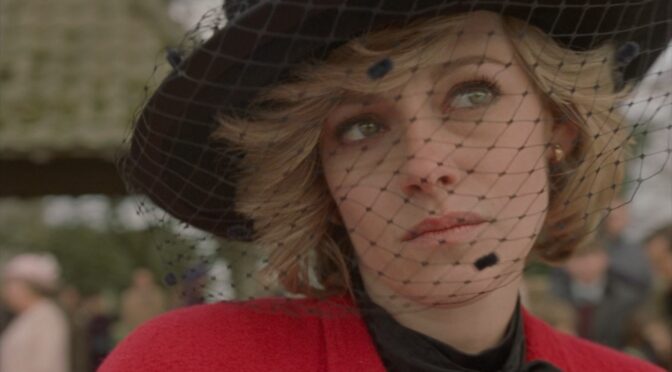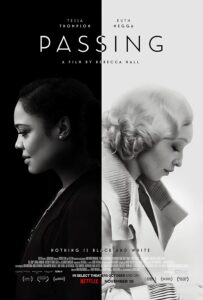

I try my best to be a purist when it comes to reviewing films and when it comes to choosing the worthy group to make my annual top twenty list. By that I mean, I tend to avoid choosing a film just to be novel or omitting a film just because it’s already been listed by a plethora of other critics. My list is meant to commemorate (for my own forgetful future self as much as anyone) what most impacted me that year and I like it to stand as a reliable barometer of that first and foremost. To be frank, I don’t go out of my way looking for controversy in my choices. I often find myself in line with much of the critical consensus and I’m perfectly okay being in that line as long as it reflects my honest impressions about the film year. That said, left field picks and passion picks do end up on my lists semi-occasionally and I won’t deny that I feel a little swell of pride when they do. It’s nice to stand up for films that deserve more love. Critic or not, having personal choices you can fight for is one of the great joys of being a movie lover. In the case of Pablo Larrain’s Princess Diana film Spencer, I may need to walk the word “personal pick” back a bit, for it’s not as if I’m by myself in adoring it. There is a nice, reasonably sized group of us up here on this weird little Kubrickian hilltop. Spencer was by and large a well-reviewed film, even taking home the lion’s share of Best Actress critics prizes for Kristen Stewart. But, despite some good ink, Spencer has still felt like the most unfairly picked on great movie of 2021. General audiences seemed to absolutely loathe it (the same ones that presumably cheered on a dysfunctional carbon copy biopic like Bohemian Rhapsody to earth-shattering box office) and, even among the critical community, it felt just a wee bit polarizing. I am incensed on Spencer‘s behalf that it is not unanimously beloved, but this does give me the thrilling opportunity to defend its honor; to leap onto my white steed and mount a spirited defense on behalf of Pablo Larrain’s inventive, cerebral, and emotional fable (as an opening title informs us) about the late Princess of Wales’ uncomfortable tour of duty as an in-law of England’s Royal Family. It’s a joy to be able to champion its many virtues because a second viewing of Spencer only made it more clear what a special, singular and even playful ode it is to Diana Spencer and what her trials as both a Royal and as arguable the world’s most public figure have to say about modern celebrity worship and how a media-infused society treats the women it purports to idolize.
Continue reading →


Everyone take a bite of your nearest mutton leg (or vegetarian alternative), hoist a pewter mug full of mead, and roar out a mighty toast to the Year of Our Lord 2021, one of the greatest on record for Medieval Cinema! I’ve never been automatically in the tankard for tales of ye olden days, heavy with sword fights and knights and kings. If I’m being honest with myself, most of the Robin Hoods not featuring photogenic foxes or Mel Brooks songs have been non-starters for me and, like many, I had consumed my fill of Game of Thrones years before it ended. But when a good Middle Ages-adjacent tale works it works, and 2021 gave us a few special films to stir up the raucous warrior blood in the Medieval film genre. Ridley Scott gave us a wickedly modern skewering of fragile masculinity in The Last Duel and David Lowery may have made the best Arthurian movie of all time with The Green Knight. And, surprising nobody who has seen the delicious texture and tone he has brought to period pieces like True Grit, Inside Llewyn Davis, Barton Fink, O Brother Where Art Thou, The Man Who Wasn’t There, and Miller’s Crossing, Joel Coen gave us another grippingly nuanced and inventive look into bygone times with The Tragedy of Macbeth. He has given us a reading of Shakespeare’s violently engaging masterwork that howls and moans with all the maniacally ominous glee of a crackling ghost story. A bloody and foreboding yarn so cynical and bleak that you almost feel elated by its sinister, primeval majesty. Both The Green Knight and Coen’s Macbeth aim to make us feel unsettled from the first seconds and in similar ways; a raspy feminine voice croaks archaic poetry at us from offscreen in a way that both repels us and invites us to lean forward to enjoy the old school pleasure of a dark, dangerous story. Both got right under my skin and made me light up like a little kid huddling by a campfire. Apparently Old World sagas recounted with heaping helpings of uncanny dread is a pleasure center I had forgotten I had, and one I hope to have engaged more in the near future. As I have noted before, 2021 gave a renewed good name to the period piece by taking journeys into history that were both aesthetically engaging and also worked with feverish imagination to connect those stories, costumed in period garb, to the present day. And very few films did a better job tying a centuries-old tale to the here and now than Joe Coen’s masterful voyage into Shakespearean calamity.
Continue reading →


The ascendance of Persian writer-director Asghar Farhadi over the last ten years, from hot upstart to reliable Oscar contender (he has two gold men for Foreign Language Film already) has been so steady that it almost feels like we cinephiles may already take him for granted. By the time he was accepting his second Academy Award for The Salesman in 2016, you could detect a whiff of the inevitable and the unhip to it; the sense that the Oscars were now just fully in the tank for Farhadi. As if he were Ron Howard, as opposed to one of cinema’s most exciting and consistently thoughtful chroniclers of human nature. We have the luxury of living in a world where an Asghar Farhadi film is a presumable Oscar heatseeker and, predictability aside, we’re all much the better for it. And, if there is a reason why a director with the prickly, nuanced humanism of a Persian Kenneth Lonergan has been so readily embraced even by the rarely prickly Oscars, it’s that there is something kind of undeniable about his films. You can feel it when you watch one. There is just something intuitively powerful and right about how candidly and potently he captures living, breathing human beings. Anecdotally, I remember speaking to a handful of friends in 2011, not long after A Separation had come out, and being quietly floored to find that they had sought out the film. None of them were what I’d call ravenous arthouse fans and I was rather surprised that an intricately plotted, densely verbal Iranian divorce drama had found its way to them. Not only had they seen it, they were ecstatic and effusive about it. And when I went to rewatch it, it made sense why they would be. Yes, the film was difficult in its subject matter and the simmering intensity of the characters’ plights, but the stuff of classic, old-school drama was right there on the screen. When you watch an Asghar Farhadi film unfold (and few directors working today are better at painstakingly unfolding a story), you get that know-it-when-you-see-it tingle. They required a modicum of patience, but they reward that patience with stories of human miscommunication and striving and faltering and trying to do better that just connect. They tap into something universal and relatable. I think what is spell-binding is how Asghar Farhadi can take stories happening in the very specific cultural and political environment of modern Iran, posit very pointed insights about Persian society, and also transcend that cultural setting to find themes that are powerful and timeless.

Continue reading →


It’s almost hard to believe that we’re still just a humble seven years into the ascendance of Tessa Thompson. I remember going out on a date with my now-wife in 2014. The screening was at Oakland’s New Parkway Theater, and the film was director Justin Simien’s incisively funny debut satire Dear White People. I thought it was very good and my wife just about loved it. The Sundance splash was maybe too shaggy and small-scale to make a dent with many awards bodies, outside of some scattered and deserving Breakthrough and First Feature wins. But, even knowing that it would not come near Oscar, we felt buzzy about it walking out onto the street. What lingered with me was the sheer promise I had seen on screen that night. Justin Simien’s potential as a writer and director, for one. But even more instantly, lightning-in-a-bottle undeniable was the performance by Tessa Thompson. Beyond the dynamite performance, I felt like I had just come face to face with a real presence; a charismatic force. Thompson had been around for five years prior, unbeknownst to me, appearing in some well-regarded indie films and a Tyler Perry movie. But Dear White People was the moment her star arrived fully formed, and the seven-and-change years since then have been all about Tessa Thompson repeating her name ever louder for those in the back. Her impressive body of work already includes a role in acclaimed MLK drama Selma, HBO’s Westworld, and Alex Garland’s excellent science fiction horror tone poem Annihilation. She is subtle and spirited in all of those. Her early splashes with auteurs like Ava DuVernay and Ryan Coogler earned her a high placement within the Marvel Cinematic Universe (as Valkyrie), now a calling card for a great many respected screen actors. Above all that are three soulful, electrifyingly intelligent pieces of Oscar-caliber acting (never mind that the Academy tripped over its pigeon-toed clown feet to not honor any of them), the crown jewels in her tiara. The first two were tremendous supporting turns in Coogler’s Creed and in Boots Riley’s hilariously incendiary capitalism takedown Sorry To Bother You. Thompson is a great supporting player, but her magnificently complex lead work this year in Rebecca Hall’s debut film Passing should be a reminder that she is absolutely made to carry films, and great ones at that. The more succinct way to put it is that Tessa Thompson is a damned star. It takes a special kind of talent to give a performance this full of quiet grace notes while also giving it the potent, Hollywood-ready charge of a true A-lister to be.

Continue reading →
Home of Carnivorous Couch: A film a week from two film geeks.











